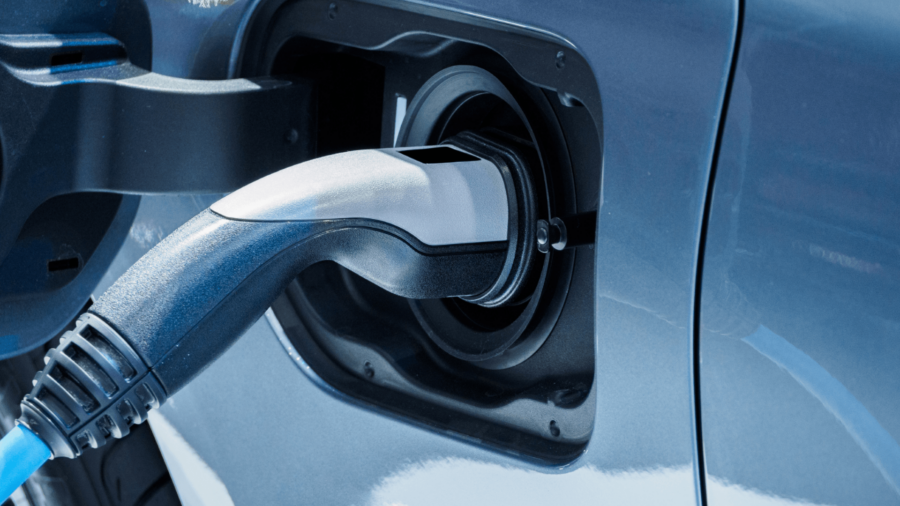
What help is there for drivers who want to go electric?
If you’re a private hire driver looking for a new car, chances are you’re thinking about making the switch to an electric vehicle. But is it worth it – and what help is available if you decide electric vehicles are right for you?
There are a few reasons why drivers are choosing electric vehicles (EVs).
For some, it’s about doing good for the planet and cutting pollution. Rides in electric cars are also quieter, smoother and more comfortable than traditional petrol and diesel vehicles, which is good for both drivers and riders.
Technology is improving all the time too. Charging times are coming down, and the range of miles you can drive without needing to charge is going up.
There are also more fast charging points arriving in cities and motorway stops across the country.
For example, in London there are about 6,000 EV charging points in the city.
Some of these are rapid charging points which take just 30 minutes, including at Stratford International train station. More rapid charging hubs are planned for Baynard House in the City and Glass Yard in Greenwich.
It can seem like a big upfront cost to buy or lease an EV, but there are schemes that can help.
First we’ll look at the savings you can get from EVs and some of the benefits. We’ll then explain the support schemes available for drivers wanting to switch to electric.
The following information is correct at the time of writing on 18 February 2022.
Cheaper maintenance and repairs
EVs are generally cheaper to run than petrol or diesel cars. There are fewer moving parts that can go wrong or need replacing – for a start, there’s no petrol or diesel motor, radiator or exhaust system to worry about.
For new cars, an MOT will be needed after three years, but there’s no emissions test and fewer bits to examine in total.
Research has found that EV drivers can save around 50% on maintenance and repair costs compared to regular vehicles.
EVs come with a lot of technology built-in, so damage from accidents could be expensive, but hopefully for experienced drivers this shouldn’t happen too often.
Another benefit of owning an EV is saving on expensive fuel. And you won’t have to waste time queuing if there’s a fuel shortage, as we saw last year.
EV drivers don’t have to pay the Ultra-Low Emission Zone charge in London or Clean Air Zone fees in other UK towns and cities.
Meanwhile, the cost of driving into these zones is going up for cars that don’t meet minimum emission standards. More cities plan to bring in Clean Air Zones this year, and in London the ULEZ could be expanded even further.
So if you decide an EV is right for you, what help is there to go electric?
Government grants
You can get a discount on the price of a brand new EV through a government grant which is given to car companies and dealerships. You can find a list of vehicles that qualify here.
The good news is you don’t need to apply – the dealer will include the value of the grant in the price. The maximum grant available for cars is £1,500.
Join our private hire driver newsletter:
Uber support
If you drive with Uber, there are several schemes available such as Uber’s Clean Air Plan. When you drive on the app in London, money is collected which you can apply for to cut the cost of an EV.
Once you’ve reached at least £100 and completed 150 trips in the past eight weeks, you can choose how to use the potential grant to pay towards your new EV.
Whether you’re buying or leasing an EV, Uber also has some exclusive deals with car makers and dealerships.
The company is encouraging riders to book an EV too, through its Uber Green service.
Home-charging
The Electric Vehicle Homecharge Scheme provides help if you decide to get a charging point at home.
This grant pays for 75% of the cost of a charge point including home installation, up to a maximum of £350 (including VAT).
Don’t have a garage or driveway where you can charge your EV? It’s possible to park on the road outside your home and run a charging cable to your vehicle.
There aren’t any legal rules stopping you from running a cable across a pavement, although councils have the power to remove cables if they’re considered to be unsuitable or unsafe.
One option is to use a raised cable protector which can be seen easily. You can buy these online or from trade shops.
At INSHUR, we cover a wide range of vehicles, including EV models. To get a quote in minutes that’s personal to you, check out INSHUR today.
Sources:
https://www.uber.com/gb/en/u/drive-journey-to-electric/
https://www.london.gov.uk/press-releases/mayoral/london-hits-electric-vehicle-charging-points-miles
Related articles:
https://inshur.com/blog/best-electric-cars-for-uber/






